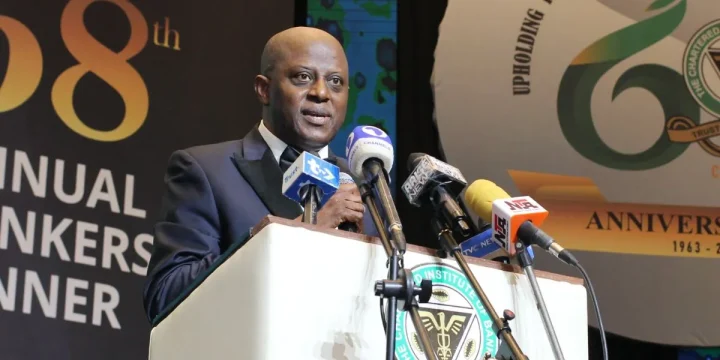
Olayemi Cardoso, the governor of the Central Bank of Nigeria (CBN) says consultations are ongoing “at the highest levels” for the country to exit the “grey list” – an anti-money laundering watchlist of the Financial Action Task Force’s (FATF).
The development comes 24 hours after the Nigerian Financial Intelligence Unit (NFIU) announced that FATF had approved the country’s fourth progress report since Nigeria was placed under watch.
The FATF had included Nigeria and South Africa on its grey list on February 24, 2024.
Advertisement
Countries on the list are often subjected to increased monitoring and need to intensify efforts to tackle money laundering and terrorism financing, according to the task force.
The FATF said the inclusion of a jurisdiction to its grey list means that the country has committed to resolve identified strategic deficiencies within agreed timeframes swiftly.
The organisation is an intergovernmental policy-making body that seeks to combat money laundering and the financing of terrorism.
Advertisement
Speaking to journalists in Washington DC on Saturday, Cardoso, said removing Nigeria from the grey list has been critical in his engagement during the annual meetings of the International Monetary Fund (IMF) and the World Bank.
“I would like to emphasise that we are consulting at the highest levels to remove Nigeria from FAFT grey lists, a key topic in our recent engagement,” he said.
‘WE’VE ACHIEVED INCREASED TRANSPARENCY, IMPROVED FX SUPPLY’
Speaking on ongoing monetary policy efforts, Cardoso said since his team assumed office a year ago, there has been a focus on addressing inflation, restoring investor confidence in the financial markets, and stabilising the exchange rate.
Advertisement
He said the apex bank also focused on enhancing financial systems provision, fostering financial inclusion, and enhancing transparency “in our monetary policy decisions and communications”.
“We embarked upon bold and necessary reforms to return to the path of monetary policy orthodoxy, as well as remove observed distortions in the foreign exchange market,” the CBN governor said.
“Our efforts have yielded significant progress as volatility in the foreign exchange market has abated immeasurably, and remittances have also increased significantly.
“We have achieved increased transparency and improved overall supply in the foreign exchange market, leading to reduced arbitrage and speculative activities and eliminated the fund loading of foreign exchange demand.”
Advertisement
On October 8, the CBN reaffirmed its commitment to maintaining a stable financial system while ensuring the safety of depositors’ funds.
The bank also announced the introduction of an electronic foreign exchange matching system (EFEMS) to reduce speculative activities, eliminate market distortions and “give the CBN improved oversight capabilities to effectively regulate the market”.
Advertisement
The system is expected to be implemented on December 1.
Advertisement
Add a comment












